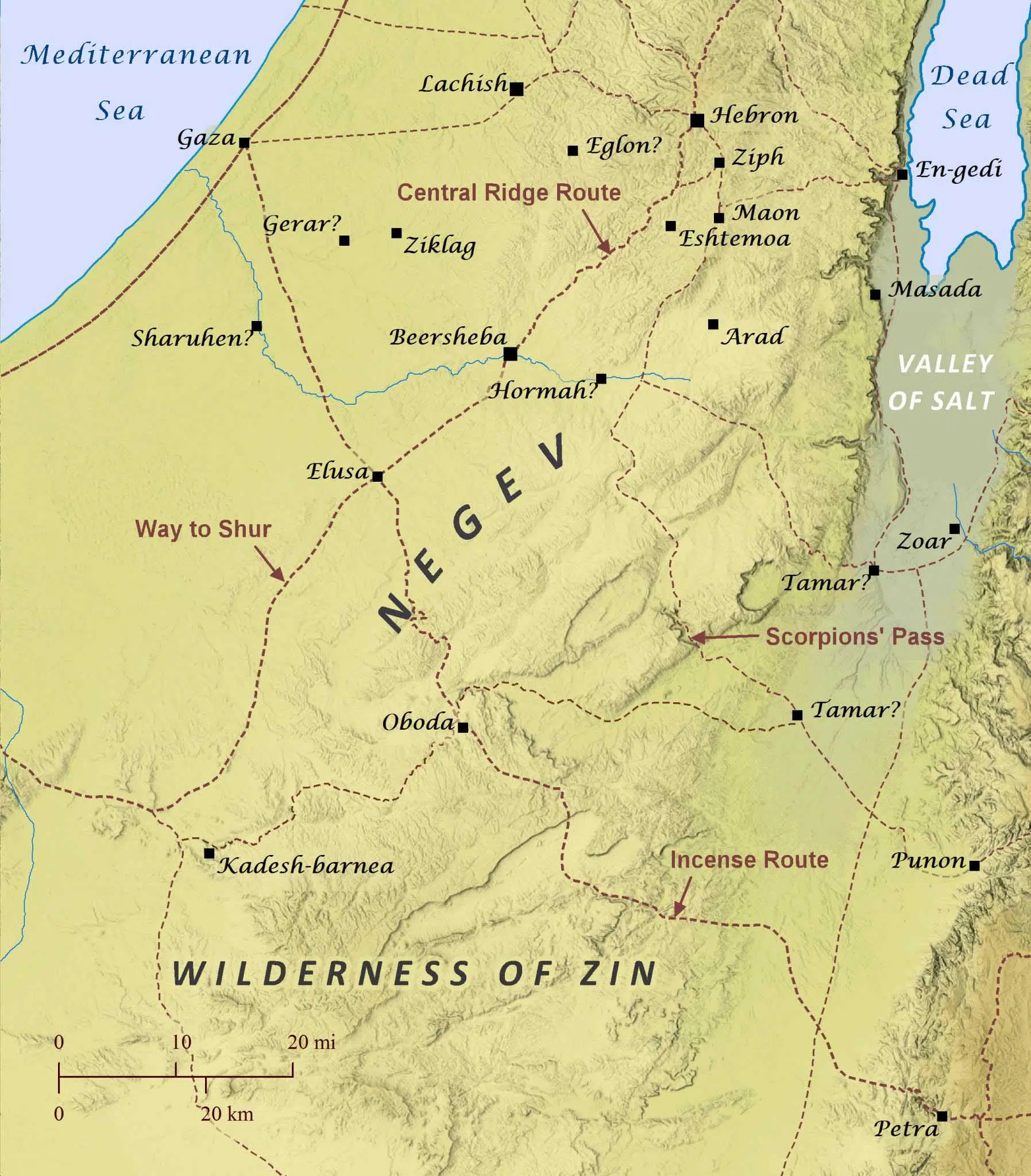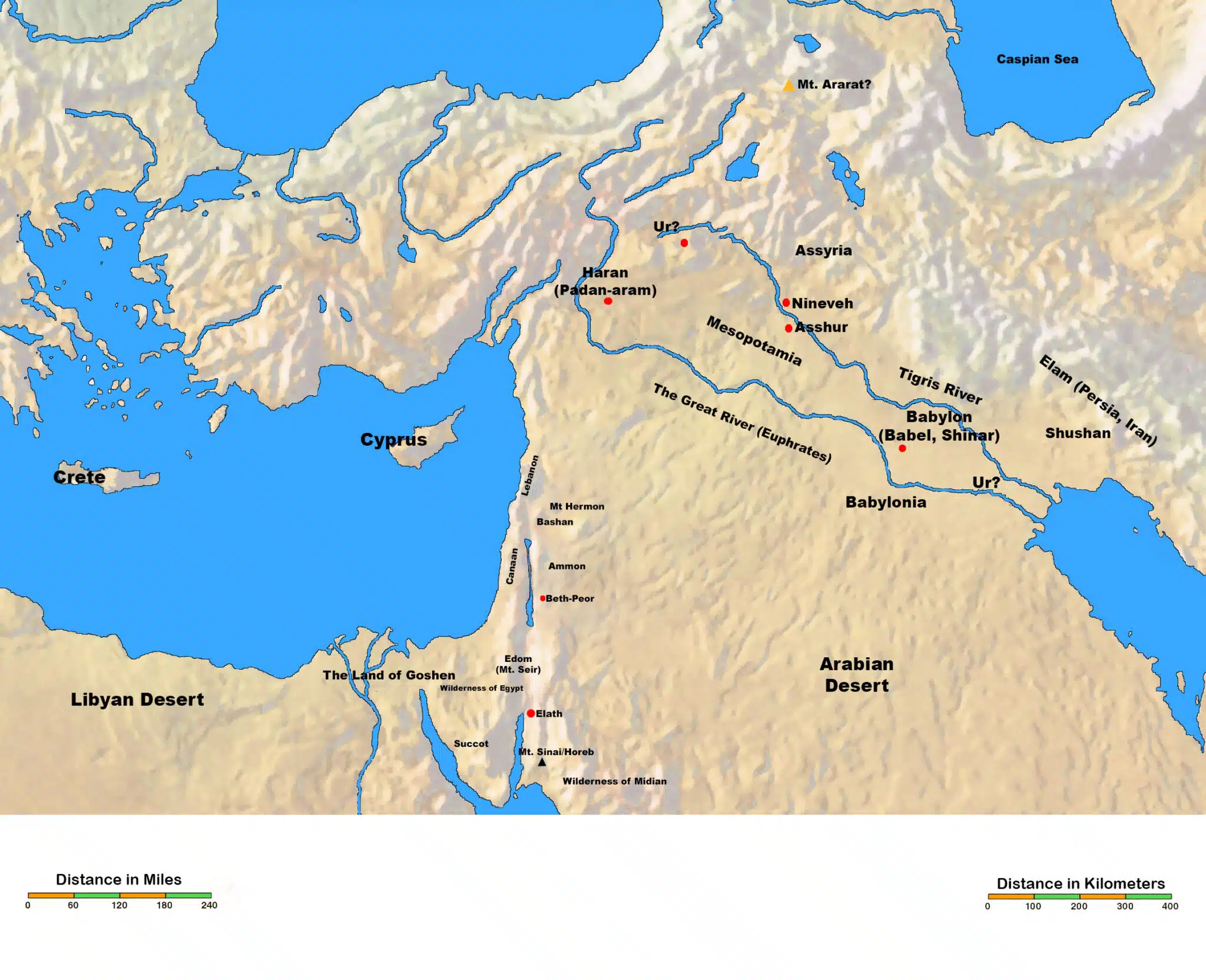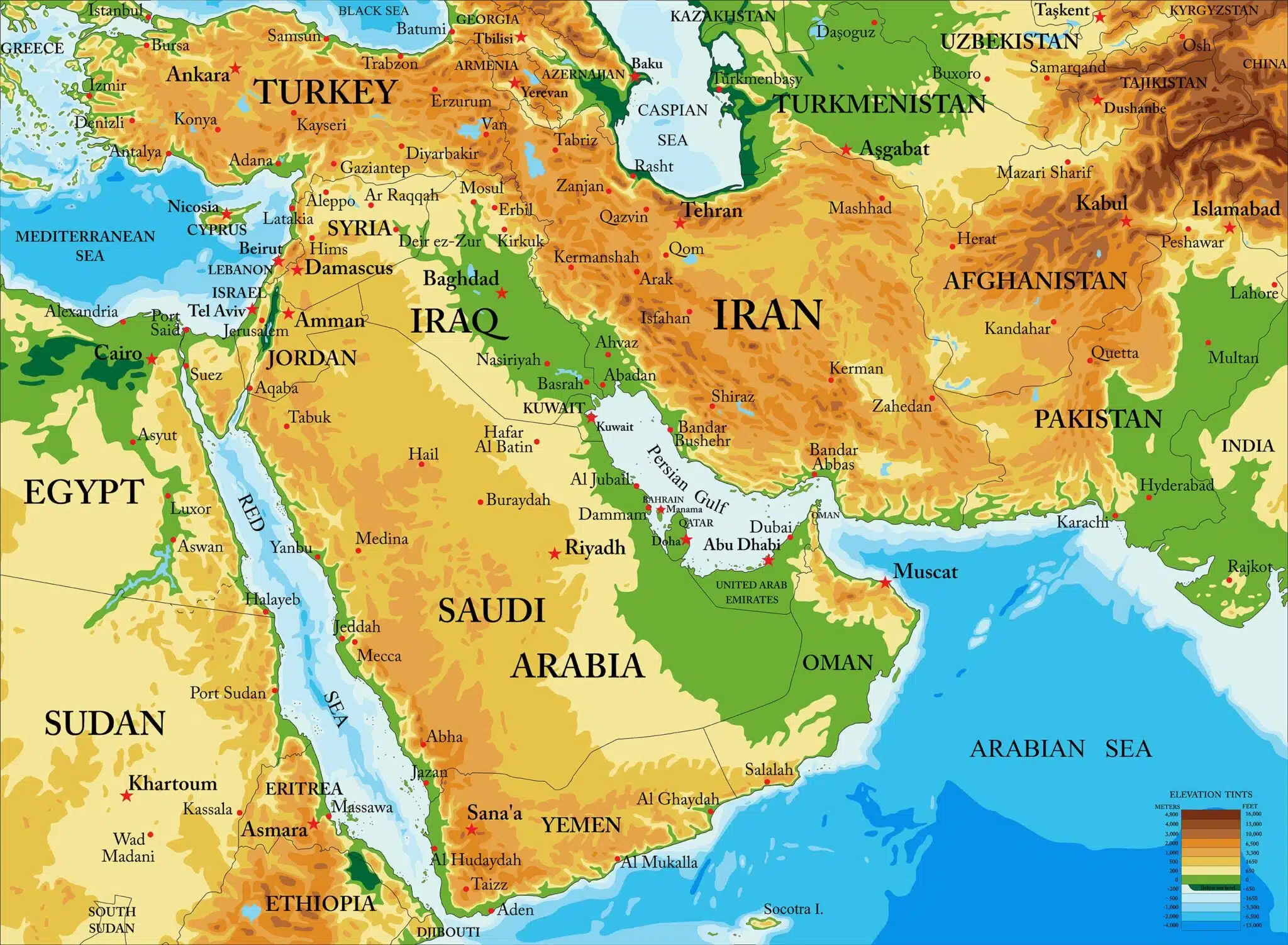God reminds Abram of the promise to give him numerous descendants and reaffirms the length and breadth of the land that will be theirs. Abram moves to Hebron and builds an altar.
Mention of Abram’s descendants had been general. Genesis 12:7 presumes he will have them, and 12:2 says that he will become a “great nation.” Verse 16 is more explicit. A nation in ancient times could be a relatively small group. The dust of the earth represents the large number of Abram’s offspring. Similar phrases like, “as numerous as the stars in the sky” and “as the sand on the seashore” are used later (Genesis 15:5, 22:17, 28:14; 2 Chronicles 1:9; Numbers 23:10). In other words, they will be uncountable. The New Testament sees believing Gentiles as well as faithful Jews as being counted as Abram’s spiritual descendants by faith (Romans 4:16–18; Galatians 3:29), so that in heaven there will be “a great multitude which no man can number, from every nation, from all tribes and peoples and tongues” (Revelation 7:9). Yet, Abram has no children at this point in the story.
God told Abram to Arise, walk about the land through its length and breadth; for I will give it to you. Abram was to inspect and exercise authority over the land, anticipating the promised ownership. Early Jewish customs understood this traveling through the length and breadth of the land to be a symbolic act constituting a mode of legal acquisition termed ḥazakah in Hebrew (Deuteronomy 11:24; Joshua 1:3).
In both the Egyptian and Hittite realms, the king had to undertake a periodic ceremonial walk around a field or a tour of his Kingdom in order to symbolize the renewal of his sovereignty over the land. The same symbol of acquiring land by walking through it is also known from the ancient Roman law. How Abram would take possession of the land is not explained to him, the land is still inhabited by the Canaanites and Sarai remains barren. Yet, Abram continues to have faith that God’s promise is true. Pursuant to the suzerain vassal type treaty where land is rewarded for faithfulness, Abram lays claim to the land, believing that God will provide the descendants to possess it.
With the promise given again, Abram now moved south by the Oaks of Mamre which Which are in Hebron. Hebron was an Anakite city (Numbers 13:22) originally called Kiriath-Arba, “city of Arba” (Joshua 14:15, 15:13), located in the forested highlands just north of the Negev, about nineteen miles southwest of Jerusalem (Genesis 12:9; Joshua 17:15). During the middle Bronze Age (circa 2000-1500 B.C.), during the time the patriarchs lived, Hebron was a major settlement in the Judean hills. It was roughly between six and seven acres, heavily fortified, and had some large public buildings. Abraham, Isaac, and Jacob all lived there (Genesis 18:1, 35:27, 37:14). Sarah, Abraham, Isaac, Rebekah, Jacob, and Leah were buried in Hebron (Genesis 23:19, 35:27-29, 49:29-32, 50:13). There, Abram built an altar to the Lord.
Biblical Text
16 “I will make your descendants as the dust of the earth, so that if anyone can number the dust of the earth, then your descendants can also be numbered. 17 “Arise, walk about the land through its length and breadth; for I will give it to you.” 18 Then Abram moved his tent and came and dwelt by the oaks of Mamre, which are in Hebron, and there he built an altar to the Lord.
Check out our other commentaries:
-
Psalm 118:1 meaning
Psalm 118 begins with a common exhortation to “Give thanks to the LORD.” The reason he provides for us to give thanks is: “for He...... -
2 Corinthians 3:4-6 meaning
Paul’s confidence is in God through Christ. Any adequacy he may have is from God. He introduces the new covenant of the Spirit, who gives...... -
The Original Passover meaning
Broadly speaking, Passover evokes the entire story of Israel’s relocation to Egypt under the protection of Joseph, the flourishing of the Israelite people, the murderous...... -
Hosea 1:6-7 meaning
Hosea’s wife gives birth to a daughter, and the LORD commands Hosea to name her “Lo-ruhamah” meaning “No Mercy” because He will no longer have...... -
Exodus 38:9-20 meaning
The courtyard itself is constructed. It would surround the tabernacle and the outer court.......





